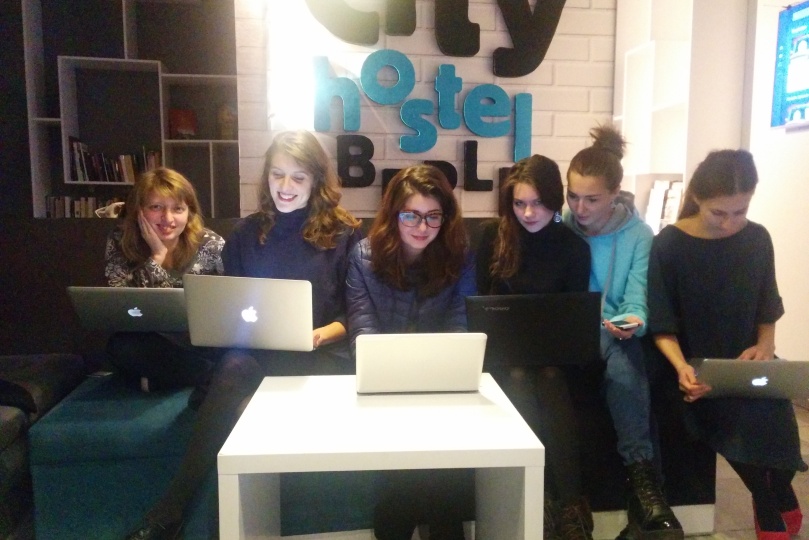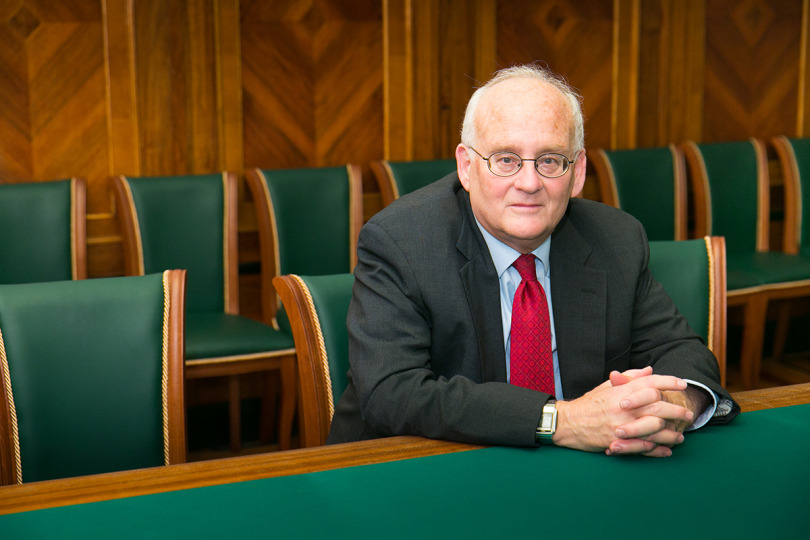St. Petersburg’s Gastronomic Brand Goes International
Scholars at HSE St. Petersburg have published their research in a new monograph for international tourism professionals. Dr. Valery Gordin, Deputy Director of HSE St. Petersburg and Head of the Laboratory of Cultural Economics, together with Dr. Julia Trabskaya, Leading Research Fellow at Laboratory of Cultural Economics, authored a chapter for a book entitled ‘Tourism Management, Marketing, and Development. Performance, Strategies, and Sustainability’. Palgrave Macmillan, a leading global publisher, issued this volume in December 2015.

Joint Seminar of HSE and Hertie School of Governance
On December 14th-16th 2015, a joint seminar between HSE and the Hertie School of Governance was held in Berlin. The staff members of the Laboratory for Political Studies, students, doctoral students and faculty of the Hertie School of Governance as well as researchers from Oxford, Cambridge and Heidelberg Universities took part in the event.
53%
of Russian families with children believe that children with disabilities should study with non-disabled children.
HSE Researchers Help Treat Cancer in Children
HSE School of Data Analysis and Artificial Intelligence is conducting research for Federal Research Center of Pediatric Hematology, Oncology, and Immunology on how the treatment response might vary depending on the patient's physiology, such as the state of the internal organs and blood, and what the role of genetics is.
Over Ten HSE Journals Selected for Russian Science Citation Index Project
The Russian Science Citation Index project has been officially launched. The best Russian academic journals are now compiled in a separate database on the Web of Science platform. The goal of the project is to integrate Russian academic journals into international networks for scientific information exchange. 649 journals have been included in the RSCI list based on bibliometric indicators and expert assessments.

‘HSE Has Been Innovative from the Start’
Academic and expert in the field of international higher education, Philip Altbach has been made Honorary Professor in a ceremony at HSE. Altbach began to study education in his youth because he believed it was a key factor to bring about change in society. Is it possible to take educational models which work well in some countries and copy them in others without making any alterations? What good are rankings and what shouldn’t we sacrifice for their sake? What gives HSE its competitive edge? Professor Altbach talked about all these issues in an interview with HSE News.
60%
of managers at industrial manufacturing companies in Russia are not holding out hope for positive changes in investment dynamics in 2016.
Informal Revenues Increase Credit Worthiness of Mortgage Borrowers
Mortgage borrowers who have unconfirmed income turn out to be unable to repay the loan less often than public officials, whose income consists of their official salary only. The probability of loan default is also considerably influenced by the cost of the loan. These were the findings of a study conducted by Alexander Karminsky, HSE Professor, and Agata Lozinskaya, Junior Research Fellow at the HSE campus in Perm.
Research on the Runet Economy 2014-2015
The HSE with the Russian Association for Electronic Communications (RAEC) has prepared a report on the economics of the internet services and content market in 2014-1015. The main point of the research was to evaluate how the crisis has affected the long-term development of the industry and to adjust previous predictions.
Higher Education in Russia and Beyond: From Russia with Math
The sixth issue of HERB dedicated to mathematics is now available. There are three sections in the issue. The first section is devoted to the analysis of mathematical education in the USSR and modern Russia, the second one features the career opportunities for those, who received mathematical education in Russia, and the third section describes the current situation with mathematics in universities.

